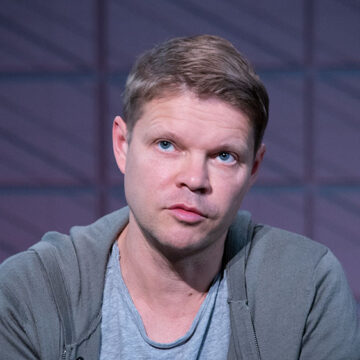When something falls apart, breaks up, crashes or sinks in Russia, the reason is clear: because it is «that country,» Rushka, Putin, the regime.
However, when something falls apart on the Champs-Elysees, or on the blessed islands or the promised land of goodness, where people flock to in the hope of avoiding all that crashing and sinking, then what are we to make of that?
What is there to prop one’s mind with so that it does not slide to one side? The EU in itself is no solution to falling roofs, so why is saying that considered to be untoward?
It is also considered untoward to say a couple of other things on the subject of the Ukraine – Russia – EU triangle.
Ukraine is upset that the government chosen by the people is preventing the country from joining Europe. Europe is indignant that it is the Kremlin that is preventing Ukraine from joining Europe. Although to be angry that it is the Kremlin’s doing is the same as to recognize that the Kremlin is stronger. But what is the point of moving from the strong side to the weak one?
The truth is that without Ukraine the European family does not feel as if anything is missing. It is not missing many others either. Some 10 years ago Greece was indignant that Brussels had published a publicity brochure about the history of united Europe and traced it back to Charlemagne’s empire. In my soul I was with the Greeks, but in my mind I understood Brussels too.
The European family does not feel like anything is missing even without much closer neighbors, like Romania, Bulgaria, Serbia, Macedonia, Albania, or indeed Latvia and Lithuania, without ancient and now capitalist Greece and Cyprus. On the contrary, the European family is grumbling: What are those people doing here, and what do we need them for?
«Romania and Bulgaria should be happy to have jumped on the last train,» I was told back in 2007 in Bucharest by a departing and therefore talkative EU ambassador.
A Eurobarometer study shows that the majority of the EU population in both old and new member states believe the process of European Union expansion is over. Incidentally, this survey was done not long after [the 2004 Orange Revolution in Ukraine].
The European family does not really care about Ukraine. The European family does care about Russia though. It is pretending that it is thinking about Ukraine but it is Russia that it keeps in mind.
Were there a strait route beyond Ukraine’s borders with the Caucasus at the other end of it; were there an ocean right beyond it, Europe would be taking its decisions driven by its relations with Ukraine alone and would decide whether it was a brotherly and European enough nation and whether to invite it in or not.
But the European family is taking its decisions on Ukraine, Georgia, Moldova, or Belarus driven by its relations with Russia. Not even relations, but the very fact of its existence in the place of the ocean that would have been far more preferable.
In the triangle between Europe, Russia and Russia’s neighbors, there cannot be a moment when Russia would suddenly become closer to Europe than Ukraine or any other of our common neighbors. Irrespective of what regime, what authorities, what ideology is ruling in Moscow, Europe will always feel closer to a neighbor of Russia than to Russia itself.
Of course, there is a new market to be explored and all the rest of it, but the main reason for Europe’s association with Ukraine does not lie in Europe’s attraction to Ukraine, rather it lies in Europe’s repulsion of Moscow.
So it is not true that Europe will save Ukraine from Russian authoritarian rule. Its choice in favor of any of Russia’s neighbors rather than Russia itself in no way depends on who is sitting in the Kremlin and how they behave.
Europe will still not set its borders either along the Pacific Ocean or the Urals. The border will run somewhere near the Dnepr river, give or take a couple of kilometers.
For the European family, any of Russia’s neighbors will be more preferable by the very fact that it is not Russia. And no political regime in Russia could change that.
And here is proof of the fact that when Europe is talking of Ukraine, it is in fact thinking of Russia. Europe wants Ukraine to tear itself away from Russia at its own expense. Europe knows full well that the game of pulling Ukraine away from Russia is a expensive one, but it wants Ukraine to pay for it all itself, intoxicated by enthusiasm and belief in a dream.
The Europe that Ukraine is imagining – a family of equal, well-behaved and prosperous members – is of course a dream. That Europe does not exist. There too, there are the rich and the poor, and some countries are more equal than others.
Several signatures under a paper with some stars cannot change either the social environment, or the quality and quantity of people or GDP or the debt-reserves ratio.
Sentiments aside, Belarusian President Alexander Lukashenko enjoys more equality in relations with the Kremlin that the Greeks do with Merkel: Just imagine what would happen if the Greeks tried to arrest the head of a major German company.
Accession to the EU has not yet turned a single East European country into a West European one.










